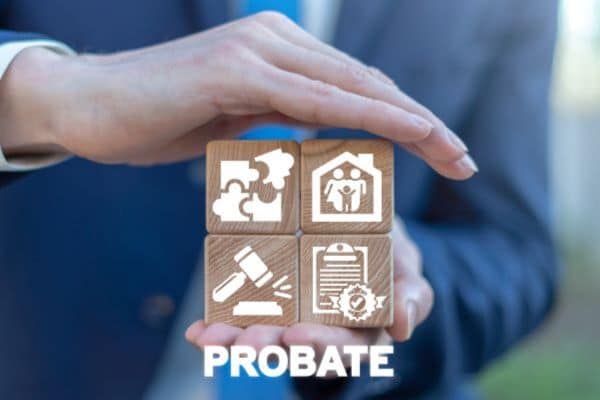AARP reports that Baby Boomers are the generation with the highest divorce rates. Divorce among older adults in the United States has been on the rise since 1990. By 2019, 36 percent of divorces involved people 50 and older.

The probate process, held in probate court, is well-known to most people, who know the process takes place after someone passes away. There are very few people who realize it can be a prolonged and complicated process. Often, it will take months, or even years to finish.
The probate process can be necessary whether or not a person dies with a Last Will and Testament (will). If someone dies and their will names a person to serve as the executor of their estate, then a probate court will appoint that person. If the will does not name an executor, or there is no will, then a probate court will appoint an executor.
After the executor files a petition with the probate court, any heirs or beneficiaries who are connected to the will are notified and have the opportunity to contest the will. The executor has control of the estate, which is comprised of all that the deceased person has left behind that is not already designated to go to beneficiaries.
After the executor has paid any debts and taxes owed by the deceased person, the executor distributes the remaining assets according to the wishes expressed in the will. If there is no will, the probate court will distribute the assets in accordance with state laws.
Since the court system is backed up, probate cases can take a long time to settle. This can be a problem for families who are trying to resolve a loved one’s estate and move on with their lives. It can be especially challenging for families in need who could really benefit from receiving their loved one’s assets sooner rather than later. Each state has different probate laws, such as California, offering a simplified probate process for smaller estates. So before beginning the probate process, find out if you are able to take advantage of the more straightforward process.
In addition to the long period of time it takes to complete the probate process, it is a complex process with many ways to make mistakes. For example, complicated paperwork can be hard to fill out accurately. Mistakes, such as forgetting to include things or filing the wrong paperwork, can increase the amount of time to complete the probate process.
In some instances, people don’t realize they need to file a probate case, which can cause problems down the road. For example, let’s say a married person dies and their surviving spouse does not complete the probate process for them. Years later, when the surviving spouse passes away, their children or heirs may need to open two probate cases instead of one. This can create headaches, especially for handling the estate of the first spouse since so much time has passed.
One thing you can do to avoid issues down the road is to own property jointly so that when one owner passes away, the surviving owner automatically becomes the sole owner of the property. Another thing you can do is periodically update the beneficiaries on any financial and retirement accounts you have. Creating a trust to transfer your property to while you are still living is a way to avoid the probate process.
An attorney who is experienced in the probate process and estate planning can guide you through the probate process your loved one passes away. This specialized attorney can also help you plan ahead and create an estate plan that will simplify, or possibly avoid, the probate process altogether.
This article offers a summary of aspects of estate planning law. It is not legal advice, and it does not create an attorney-client relationship. For professional legal counsel, you should contact an attorney. If you’re looking for a probate attorney in the Mount Dora, Florida area, please give us a call or drop us a line! We look forward to hearing from you!
